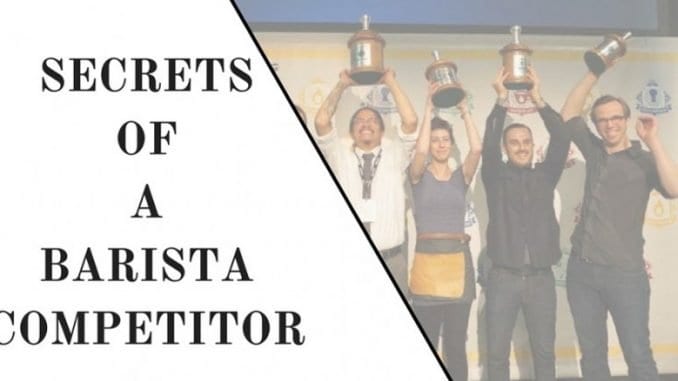
In this series, we’ll share the secrets of barista competitors. From choosing a theme to setting a practice schedule, competitors discuss how to compete smartly, efficiently, and effectively.
BY ASHLEY RODRIGUEZ
BARISTA MAGAZINE ONLINE
Photos courtesy of Counter Culture Coffee
Right before I competed at the Austin CoffeeChamps competition in February, I did a quick-and-dirty run-through for Katie Carguilo, quality analyst for Counter Culture Coffee and the 2012 United States Barista Champion. She had great feedback, but one thing she said to me really stuck: “Make sure you’re crafting an experience for the judges.”
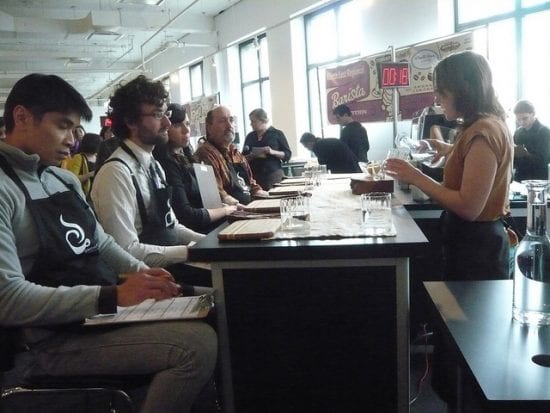
Obviously, everyone competing at USBC in Seattle in two weeks is competing to win. But it’s important to take a step back and remember why competition is important to you—and why coffee is important to you. The judges are sitting in front of you to evaluate you, but they’re also there because they want to learn something about you and your relationship to coffee. The 15 minutes they spend with you should feel like more than a rapid fire note-taking session, attempting to decide whether that espresso you served deserved a 4 or a 4.5. Like you would in your cafe, you’re crafting an experience for the judges, and Katie Carguilo gives us a few tips on how to ensure you’re doing that.
- Incorporate your personality into your routine.
“In 2012 I was working as a coffee educator, and my favorite thing was to open people’s eyes to the ways in which coffees were different,” Katie shares. In her winning routine, she used a lot of simple analogies and visuals to explain her points. “In a routine about fermentation and coffee processing, I used simple explanations and visual tools like I would when training a group of new baristas—things like friendship analogies and demonstrations using local, familiar fruit (instead of coffee cherries),” Katie notes. Find your speaking voice and the way you’d normally illustrate a point or tell a story, and use that in your routine to make it more genuine and ultimately easier to follow.
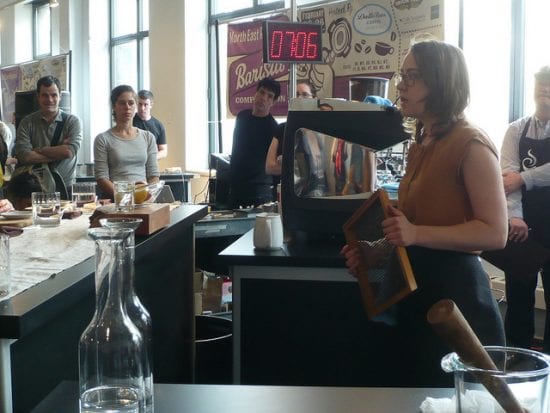
- Integrate your values into your speech.
A good routine is easy to craft, but a great routine goes beyond the conventions that we see most competition routines fall under. Speak to a topic or an idea that matters to you—if it matters to you, it’ll matter to the judges. For Katie, what was important to her was coffee processing, and other winning routines have narrowed in on other issues. “When Charles [Babinski] focused on the importance of systems and when Lem [Butler] brought his love for music into his signature drink and routine, it just took those presentations to another level,” Katie says. “Talking about something you are truly passionate about will make you feel confident, connected, and excited about competing.”
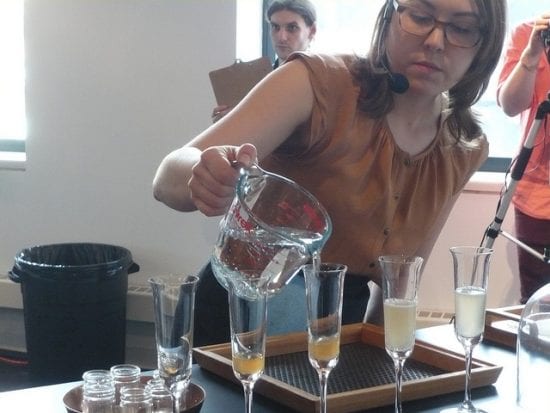
- Practice mistakes.
Most of your practice time is spent perfecting your routine, but you have to figure in the possibility of making mistakes—they’re what can throw you off your groove. “I think you can never do enough of this and I wish I had done more,” Katie notes. “When people make a mistake during rehearsal, especially early on, their impulse is to start over. I think it’s crucial to become comfortable recovering and moving on, finding time to re-pull shots, overcoming verbal flubs with grace, etc.” Katie suggests. Mistakes are natural, and in some ways they can add authenticity to your routine—if you handle them well.
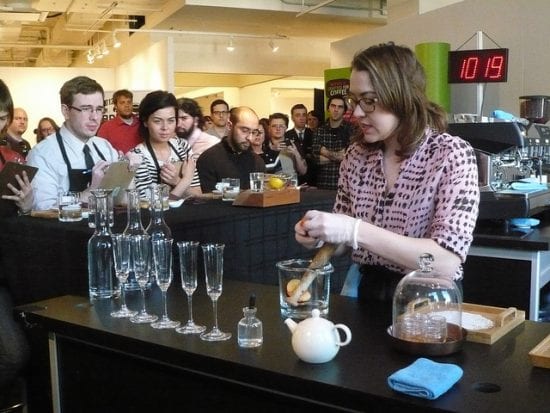
In such a high-stakes setting, mistakes can throw you off, so try practicing some common ones like cleaning up after a spilled drink or re-pulling shots. Katie also notes that you should practice within the constraints of the competition set-up, like dialing-in quickly or having a lot of space between your dial-in time and your actual routine. “If your schedule allows, I would also encourage to try dialing-in in less time, or do a run through completely cold, before you’ve worked bar and poured 100 cappuccinos,” Katie advises.

